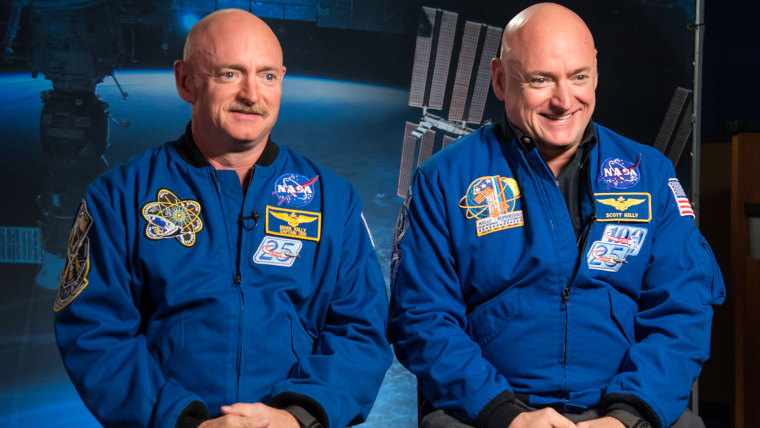It’s not often NASA researchers have the chance to use identical twins to study the effects space travel on the human body.
But Scott and Mark Kelly, 54-year-old identical twins and recently retired astronauts, gave the science community just that.
In 2015, Scott spent 340 days at the International Space Station while Mark was on Earth. During Scott’s trip, both men collected information about themselves that scientists later studied.
Findings from a NASA study on the twins found that while Scott’s DNA did not fundamentally alter, 7 percent of the gene expression has not returned to its pre-mission state. Gene expression is how the body reacts to an environment, a NASA statement explained.
"The remaining 7 percent point to possible longer term changes in genes related to his immune system, DNA repair, bone formation networks, hypoxia, and hypercapnia,” the statement read. “This likely is within the range for humans under stress, such as mountain climbing and SCUBA diving.”
Mark and Scott are still considered identical twins, however. NASA clarified the changes as “minimal.”
“We are at the beginning of our understanding of how spaceflight affects the molecular level of the human body,” the statement read.
Scott retired as an astronaut in April 2016, while Mark retired in 2011 to help his wife, former congresswoman Gabby Giffords, recover from a shooting that caused brain injury and partial paralysis.
A third study on the effects of space travel, featuring the findings on Scott and Mark, will be published later this year. The research will help inform scientists of the effects of prolonged space travel as they prepare to eventually send humans to Mars.
Editor’s note, March, 19, 2018: This story has been updated to reflect the latest statement from NASA. A previous version of this article stated that astronaut Scott Kelly no longer had the same DNA as his identical twin, Mark Kelly. He does, in fact, still have the same fundamental DNA as his twin. Rather, the expression of some of Scott’s genes has been altered.
Follow TODAY.com writer Scott Stump on Twitter.
